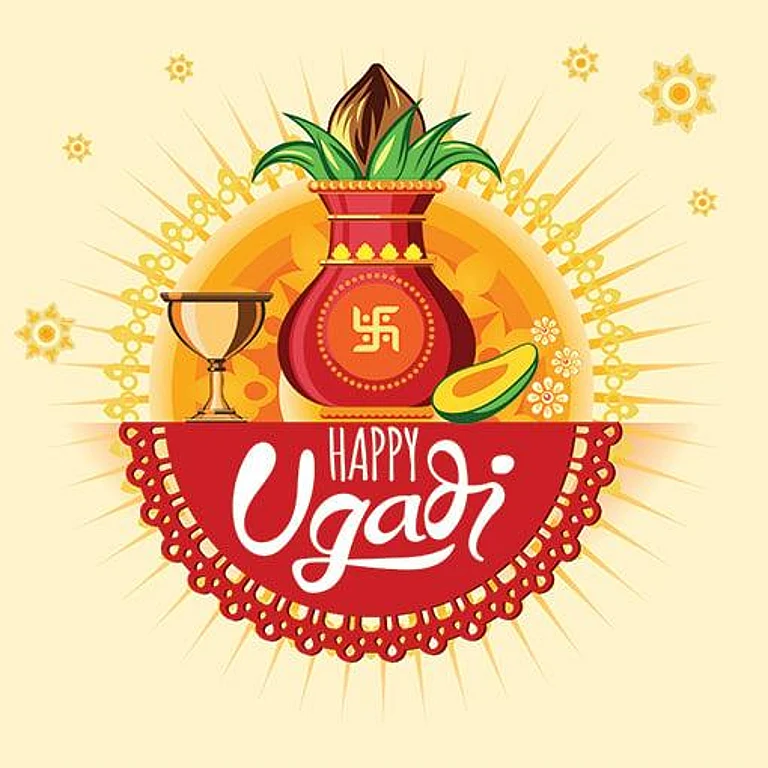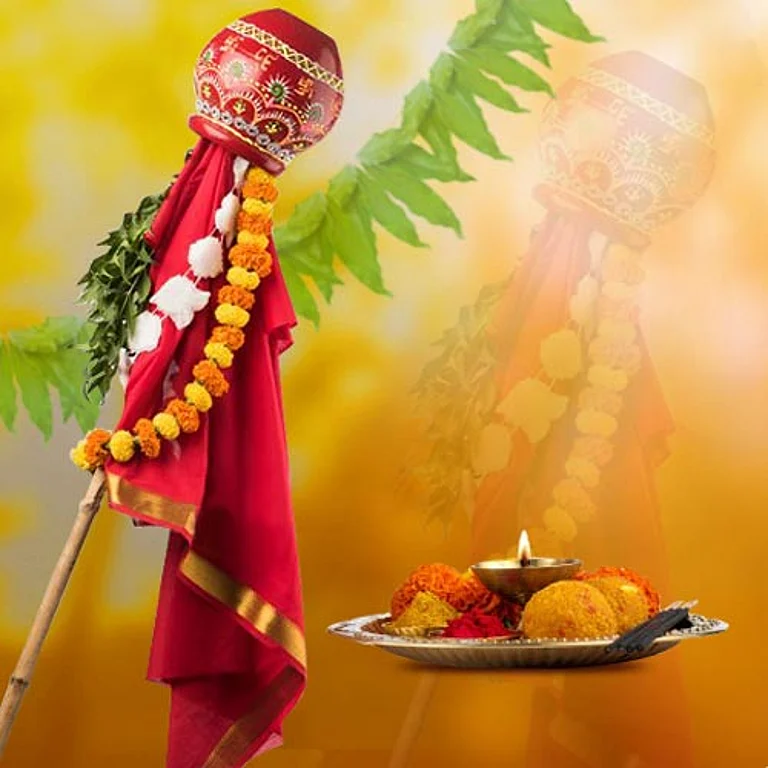Gudi Padwa is a special festival that marks the victory of good over evil, just like when Lord Rama defeated Ravana. The story goes back to when Lord Rama returned to Ayodhya after his 14-year exile and was crowned king. So, Gudi Padwa celebrates this joyful occasion. The Gudi, which is hoisted on a stick, is like a victory flag waving proudly in the sky.
Gudi Padwa also marks the start of Spring, known as Vasant Ritu, when the Sun is directly above the Equator. Another important reason for celebrating the festival is that it signals the time for harvesting Rabi crops. Since India is mostly an agricultural country, this is a big deal for Gudi Padwa.
Gudi Padwa, also known as "Ugadi" in many parts of India, is celebrated in the South region of India in the states of Maharashtra, Karnataka, Andhra Pradesh, and Telangana. Gudi Parva is celebrated with great enthusiasm and zeal by the Maharashtrians especially because it is the first day of the Hindu lunisolar year.
Maharashtra

Gudi Parva is called "Gudi Padwa" in Maharashtra and marks the beginning of the Marathi New Year. In every household, there's a hustle-bustle of excitement. The day starts with cleaning every nook and corner, as if sweeping away last year's troubles. Then comes the time to decorate! Colorful rangolis bloom at the doorstep, welcoming the good spirits in. The Gudi is carefully assembled, each member of the family pitching in. It's not just a flag; it's a symbol of new beginnings, of dreams taking flight. People hoist Gudi flags made of a bamboo stick with a bright silk cloth, neem leaves, and a garland of flowers outside their homes. Families gather together to make special treats like Puran Poli, a sweet flatbread filled with jaggery and lentils. Everyone eats together, laughing and sharing stories. Some even wear new clothes, feeling as fresh as a spring breeze. Evenings are filled with cultural programs and performances. From traditional dances to melodious songs, every corner echoes with the rhythm of celebration. There are games, laughter, and joyous exchanges of gifts among friends and loved ones.
Karnataka

Gudi Padwa is a time for celebration and also holds deep spiritual significance for the Kannada community. It is a time to reflect on the triumph of good over evil and to seek blessings for health, wealth, and happiness in the coming year. Special dishes like Obbattu (sweet flatbread), Puliyogare (tamarind rice), and Holige (sweet lentil-filled bread) are prepared. The festivities mark the beginning of the Hindu New Year, typically falling on the first day of the Chaitra month according to the Hindu calendar. One of the central elements of the celebration is the raising of the Gudi flag, which symbolizes victory and prosperity.
Tamil Nadu

In Tamil Nadu, the festival is known as Puthandu and is celebrated with traditional fervor. On this auspicious day, Tamil households are adorned with beautiful kolams (rangoli designs) at their doorsteps, symbolizing prosperity and good fortune. One of the key rituals involves the preparation of a special dish called "Maanga Pachadi," which combines various flavors representing the different aspects of life—sweetness, sourness, bitterness, and tanginess. Families wake up early on Puthandu to witness the "Kanni" (auspicious sight) first thing in the morning. The Kanni consists of auspicious items like gold, silver, betel leaves, fruits, and flowers, arranged beautifully on a tray. It is believed that viewing the Kanni brings good luck and prosperity for the year ahead.
Andhra Pradesh and Telangana

In Andhra Pradesh and Telangana, they call this festival Ugadi and it marks the beginning of their New Year. On this day, families wake up early, clean their homes, and decorate them with beautiful rangoli designs made of colorful powders. One of the most important parts of Ugadi is preparing a special dish called "Ugadi Pachadi." It's a mix of different tastes like sweet, sour, bitter, tangy, and spicy, symbolizing the different experiences of life. The day is filled with happiness and togetherness as families come together to share a special meal. Traditional dishes like Pulihora (tamarind rice), Bobbatlu (sweet stuffed flatbread), and Pesarattu (green gram dosa) are prepared and enjoyed. In some places, there are also cultural programs, dances, and music performances to celebrate the occasion.























